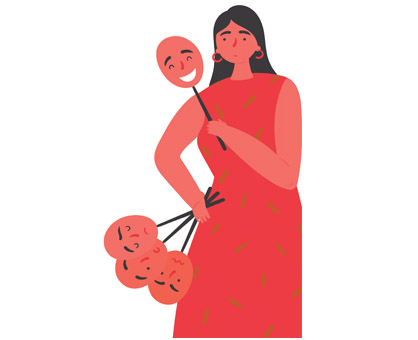Share Feelings for Better Living…and Dying.
In Bronnie Ware’s book, The Top Five Regrets of the Dying, there is much we might expect. At the end of their days, people regret that they spent more time living up to the expectations of others rather than being true to their own dreams. They regret working too much, and not keeping in touch with friends. They regret not intentionally choosing to be happy more often instead of letting themselves get caught up in stressful patterns and negative ruts. And one more thing makes the top five: they regret not having the courage to express their true feelings.
Many people near death cite instances throughout their lives of suppressing their emotions to keep the peace, and name other excuses they say ultimately led to the settling of a mediocre existence. And although this revelation comes too late for the folks featured in Ware’s book, it’s a wonderful lesson for the rest of us that learning and practicing emotional expression is a legit life skill and benefit. Indeed, health experts have long recognized that people who can clearly express their feelings and talk with others about emotions function better, enjoy deeper relationships and are overall healthier and happier.
Talking about our feelings is a skill and takes practice for a lot of us. That we can express emotions, for instance, assumes that we know what our emotions are, and many of us, in the throes of the daily grind, find it more helpful to deny them rather than bring them to light. Here are some tips for general emotional intelligence improvement:
- Stop at various points throughout your day and identify how you are feeling in the moment, adding a reason or context if you can. That meeting this morning left me frustrated because I wanted my idea to be validated and it wasn’t, is an example. Or: I still feel a little special now, because when I left the house my husband kissed me and I remembered how much we really do love each other. Conducting mini-analyses of your feelings at any given point in the day fosters regular self-awareness, a critical start to articulating emotions. It also helps identify what makes you happy.
- Asking other people about their emotions may sometimes elicit your own. How do/did you feel about that? is a great response to just about anything someone is telling you. Note who talks about their feelings well, rather than detouring away from the subject, and see what you can learn.
- When you recognize that you’re having an emotional response to something, stop and really feel the experience. Sometimes we don’t want to do this—the timing isn’t always right to let ourselves get teary-eyed or giddy—but leaning into a feeling rather than turning away can help us understand it. And if it’s happy emotion, we benefit from the rush of endorphins that accompanies the savoring. If it’s a sad response, we may be more likely to work through it by facing it squarely, identifying that we are sad, and then letting ourselves move out of the experience more effectively.
In these pandemic days, many of us are having emotions we may have trouble initially identifying, although there’s a sense that they’re related to the stress of isolation and the uncertainty that surrounds the world right now. We see this in our children; they are cranky and upset for seemingly no reason, but a thoughtful pause immediately clarifies that they are expressing emotions in the way most accessible to them: unpredictable bursts of frustration.
Engaging our children in conversations about their emotions is also key. In doing that, we’re cultivating a better relationship with them at the same time we’re preparing them. Years and years from now, when they get to their deathbeds, we know we will have done our job well if they can look back and say, I was able to tell people how I felt. I had a rich emotional life, feeling everything this incredible world has to offer, laughing and crying deeply. I have no regrets. Absolutely no regrets.








